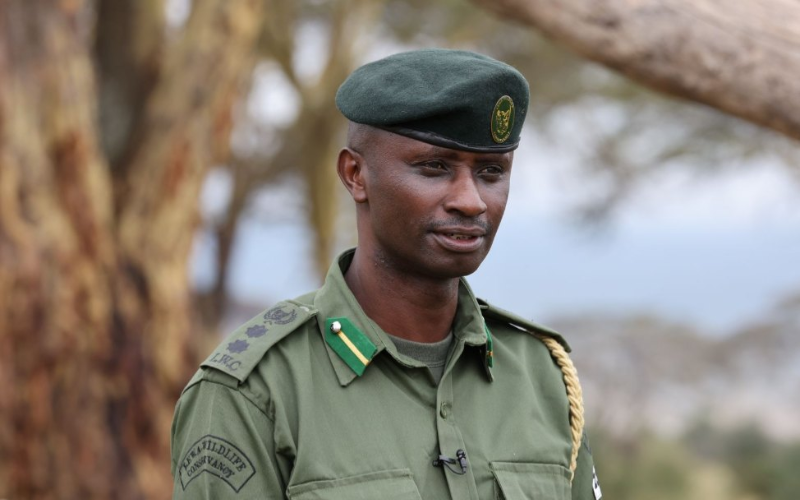On the slopes of Mount Kenya, a young Edward Nderitu once dreamed of becoming a “wildlife police officer,” as he called it.
Walking three kilometres to school through a forest alive with elephants, bushbucks, jackals, and hyenas, he could not imagine that one day those animals would vanish from his home area.
“They became extinct when I was still a boy,” recalls the 50-year-old father of three. “That’s when I knew I wanted to protect wildlife.”
The spark came from his scout master, a teacher named James, who taught the value of planting trees, protecting water catchments, and caring for nature.
“By the time I left school, I was determined to be a police officer who looked after wildlife, though I didn’t know they were called rangers,” he laughs.
Today, Nderitu is head of the anti-poaching unit at Lewa Conservancy in Laikipia County, a position he has held since joining in 1997.
Back then, Kenya had fewer than 300 rhinos, their numbers decimated by poaching.
“When people started conservation, they didn’t realise it’s all about people, the community,” he says. In Lewa’s early days, there were few community programmes.
Today, conservation goes hand in hand with building schools, funding bursaries, drilling boreholes, improving healthcare, and supporting women’s groups.
“The community is our first line of defence. Even with the best-trained rangers, without goodwill from locals, you can achieve nothing.”
Toughest Years
Between 2011 and 2013, poaching surged across Africa. “There was a time we lost four rhinos in two weeks. It was devastating,” he says.
Promoted to head Lewa’s armed unit in 2012, Nderitu faced low morale and scepticism from some colleagues.
“We had to rethink everything — give rangers proper rest, improve conditions, and change patrol tactics to daily deployments. Most importantly, we got closer to the community. That changed everything.”
By 2014, Lewa was the only sanctuary in Kenya that did not lose a single rhino — a milestone he attributes to teamwork, community trust, and government support.
In 2015, Nderitu received the inaugural Prince William Tusk Ranger Award, recognising him as Africa’s best ranger. The honour took him on his first trip outside Africa — a 20-day visit to the United Kingdom, where he met conservation leaders, including Prince William.
“That’s when I realised people out there care about our work. What we think is small here can have a global impact,” he says.
He has since travelled to South Africa, France, the US, and other countries to share Lewa’s story and learn from other conservationists.
Nderitu is also a member of the Kenya Wildlife Rangers Association and the Game Rangers Association of Africa Council. He runs charity marathons to raise money for ranger welfare.
Running marathons
Last April, he completed the 42km London Marathon in 3 hours, 43 minutes, raising $18,000 (Sh2.3 million) for gym equipment, professional trainers, and other ranger support.
In September, he will tackle a 250km race across the Namibian desert, carrying his food and gear for five days. “Being a ranger means you must stay fit. I’m not a professional marathoner, but I run to raise funds,” he says.
From a boy who watched elephants disappear from his village to a leader who helped end rhino poaching at Lewa, Nderitu’s story is one of resilience, adaptation, and community partnership.
“The work is hard,” he says, “but the results speak for themselves.”
